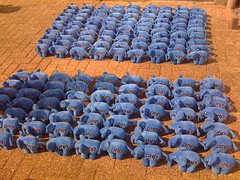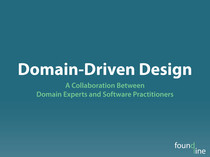Almost two years ago, Luke Wroblewski first described a trend in web development called mobile first. The basic idea was that web applications should be designed for mobile first, as opposed to designed for the desktop first. Luke provided some compelling reasons for this including the explosive growth of mobile adoption, the fact that mobile forces you to focus on key areas of your application, and that mobile extends your capabilities. Today I saw this tweet from Chris Shiflett:
The Web still trumps the Mobile Web. If you’re making a web app, don’t let “mobile first” lead you astray.
Luke’s original premise is not wrong, but I think many web developers have interpreted “mobile first” as “mobile only”—often intentionally, sometimes by accident. As Chris pointed out, it’s easy to let “mobile first” lead you astray. My response to Chris was that the goal should be One Web, even if “mobile first”. “Mobile only” should rarely, if ever, be the goal. The concept of One Web is described in the W3C’s Mobile Web Best Practices 1.0 Basic Guidelines. From the original document:
The recommendations in this document are intended to improve the experience of the Web on mobile devices. While the recommendations are not specifically addressed at the desktop browsing experience, it must be understood that they are made in the context of wishing to work towards “One Web”.
As discussed in the Scope document [Scope], One Web means making, as far as is reasonable, the same information and services available to users irrespective of the device they are using. However, it does not mean that exactly the same information is available in exactly the same representation across all devices. The context of mobile use, device capability variations, bandwidth issues and mobile network capabilities all affect the representation. Furthermore, some services and information are more suitable for and targeted at particular user contexts (see 5.1.1 Thematic Consistency of Resource Identified by a URI).
Let’s not let the web fragment into a “mobile web”, a “desktop web”, and a “whatever comes next” web—there’s no reason for this. The underlying technology is designed to allow for One Web, as Ben Ramsey added:
@BradleyHolt @shiflett This is why we have content types, accept headers, user agent strings, and content negotiation. 🙂
If you’re considering taking a mobile first approach, please consider taking the One Web approach instead. Your main focus can be on mobile to start, but at least deliver something of value that is not dependent on the client being a mobile device. As Ben suggested, use content types, accept headers, user agent strings, and content negotiation to deliver the best experience based on your user’s device or browser.
 My latest book, Scaling CouchDB, is now available in ebook format. This is a short book (about 72 pages) and serves as a practical guide to scaling CouchDB and designing a distributed system to meet your capacity needs. Replication, conflict resolution, load balancing, clustering, distributed load testing, and monitoring are covered. The chapters on load balancing (using Apache) and distributed load testing (using Tsung) are broadly applicable, even if you aren’t a CouchDB user.
My latest book, Scaling CouchDB, is now available in ebook format. This is a short book (about 72 pages) and serves as a practical guide to scaling CouchDB and designing a distributed system to meet your capacity needs. Replication, conflict resolution, load balancing, clustering, distributed load testing, and monitoring are covered. The chapters on load balancing (using Apache) and distributed load testing (using Tsung) are broadly applicable, even if you aren’t a CouchDB user.





